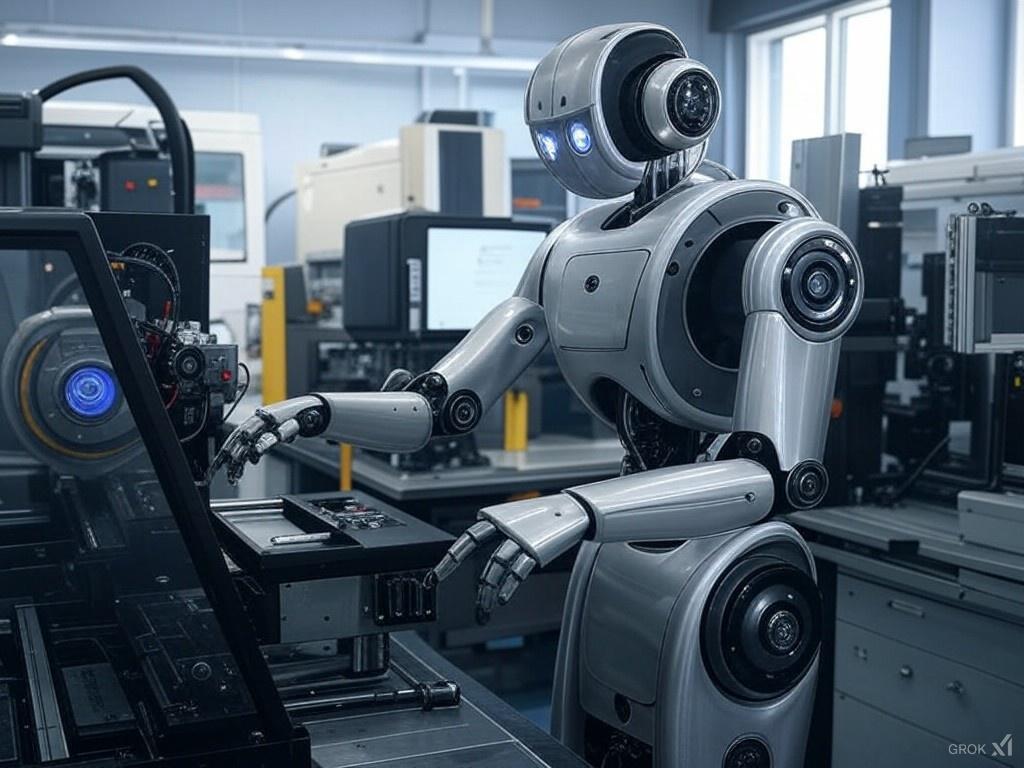Robotics engineering is changing the way we live, work, and solve problems. Around the world, robots are being used to improve industries like healthcare, agriculture, manufacturing, and even education. In Nigeria, a country with a fast-growing population and economy, robotics is beginning to play an important role. Nigerian innovators, educators, and engineers are exploring the possibilities of robotics to solve local problems and compete globally.
This article will explore how robotics engineering is developing in Nigeria, the challenges faced, and the opportunities it brings for the future.
What Is Robotics Engineering?

Robotics engineering is the study and design of robots. Robots are machines that can perform tasks automatically, often mimicking human actions. They can be simple, like a vacuum cleaner that cleans floors by itself, or highly advanced, like a robot that performs surgeries with precision.
Robotics engineers combine skills in mechanical engineering, electrical engineering, and computer science to build robots. These professionals design how robots look, how they move, and how they make decisions.
In Nigeria, robotics engineering is still a growing field, but it has the potential to impact many areas, including farming, manufacturing, healthcare, and education.
Why Robotics Matters in Nigeria

Nigeria is Africa’s largest economy and most populous country. However, it faces several challenges, such as unemployment, inefficient industries, and a lack of advanced technology in many sectors. Robotics could provide solutions to some of these problems.
- Improving Agriculture: Nigeria’s economy depends on agriculture, but traditional farming methods are often slow and inefficient. Robots can help with planting, harvesting, and monitoring crops. For example, drones (flying robots) can be used to check on large farmlands and spray pesticides more accurately.
- Boosting Manufacturing: Many products in Nigeria are still made by hand, which takes time and limits production. Robots can increase efficiency in factories by assembling products faster and with greater accuracy.
- Enhancing Healthcare: Robots can assist in surgeries, deliver medicines, and even help diagnose illnesses. This could be especially useful in rural areas where there are not enough doctors or nurses.
- Education and Skill Development: Robotics can inspire young Nigerians to learn skills in science, technology, engineering, and math (STEM). This will prepare them for future careers and encourage innovation.
Current State of Robotics in Nigeria
Robotics engineering is still a relatively new field in Nigeria, but there are already many signs of progress. Schools, universities, and organizations are starting to introduce robotics to students and professionals.
- Schools and Competitions: Some schools in Nigeria are teaching robotics to students at a young age. For example, there are robotics clubs and competitions where students build and program robots. These events not only teach technical skills but also encourage creativity and teamwork.
- Universities: Several universities in Nigeria offer courses or research opportunities in robotics. Institutions like the Federal University of Technology, Minna, and the University of Lagos are leading efforts to teach robotics engineering. Students are learning how to design and build robots that solve local problems.
- Startups and Companies: Nigerian startups are entering the robotics field to create innovative products. For instance, some companies are using robots to automate tasks in industries like farming, logistics, and security.
- Government Support: While the government has begun recognizing the importance of robotics, more support is needed to provide funding, resources, and policies that encourage innovation.
Challenges Facing Robotics Engineering in Nigeria

Despite the progress, there are challenges that slow down the growth of robotics engineering in Nigeria. These challenges need to be addressed to unlock the full potential of the field.
- Lack of Funding: Building robots and setting up robotics labs can be expensive. Many schools and organizations cannot afford the necessary equipment, which limits opportunities for learning and innovation.
- Shortage of Skilled Professionals: Robotics requires advanced skills in engineering, programming, and mathematics. Nigeria does not yet have enough trained professionals to meet the growing demand in this field.
- Limited Awareness: Many people in Nigeria are not aware of what robotics can do or how it can solve everyday problems. This lack of understanding makes it harder to attract interest and investment in the field.
- Infrastructure Issues: Robotics depends on reliable electricity and internet connectivity, which are still major challenges in some parts of Nigeria.
- Importing Materials: Many components needed to build robots are not produced locally and must be imported. This increases costs and delays projects.
Opportunities for the Future

Despite these challenges, Nigeria has great potential to become a leader in robotics engineering in Africa. The country’s large population of young, tech-savvy individuals and growing tech industry provide a strong foundation for growth.
- Youth Empowerment: By teaching robotics in schools and offering more training programs, Nigeria can empower its youth with skills for the future. Young Nigerians could become inventors, solving local problems with robotics.
- Local Innovations: Nigerian engineers and entrepreneurs have a deep understanding of the country’s challenges. They can create robots tailored to local needs, such as affordable farming robots or robots that work in off-grid environments.
- Partnerships and Investments: Collaborations with international robotics companies and organizations can bring funding, expertise, and equipment to Nigeria. This will help accelerate the growth of the robotics industry.
- Job Creation: Robotics engineering can create jobs in manufacturing, programming, maintenance, and more. While robots automate some tasks, they also open up new opportunities for skilled workers.
- Global Recognition: With continued innovation, Nigeria can gain recognition as a hub for robotics in Africa. This will attract more investors and inspire other African countries to follow suit.
Robotics engineering in Nigeria is still in its early stages, but it holds enormous potential to transform the country. By embracing robotics, Nigeria can solve pressing challenges in agriculture, manufacturing, healthcare, and education. To achieve this, more investment in education, funding, and infrastructure is needed.
You May Also Like: Coding in Nigeria: The Untold Stories of Rising Tech Stars
The future of robotics in Nigeria depends on the collaboration between schools, businesses, the government, and international partners. Together, they can create an environment where robots are not just machines but tools for building a brighter, more innovative future.
With dedication and support, Nigeria can pioneer advancements in robotics and shape a future where technology improves the lives of its citizens and strengthens its economy.

Leave a Reply
You must be logged in to post a comment.